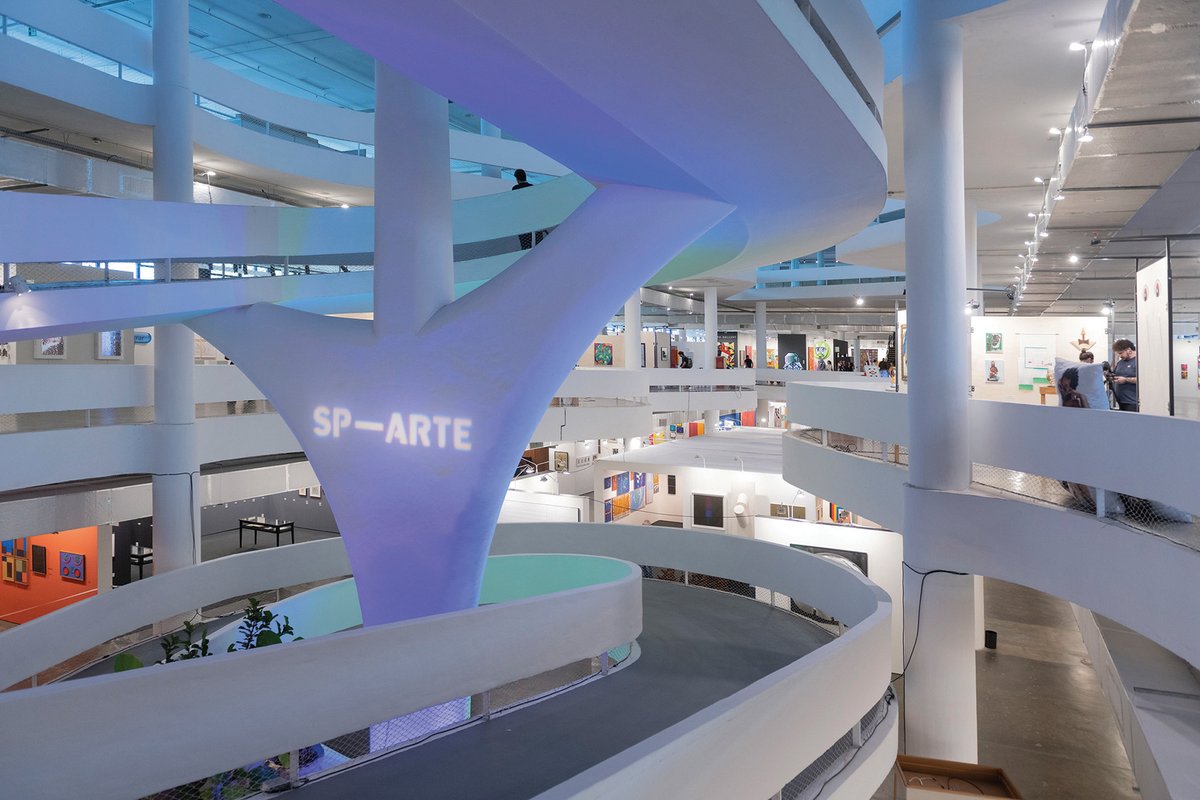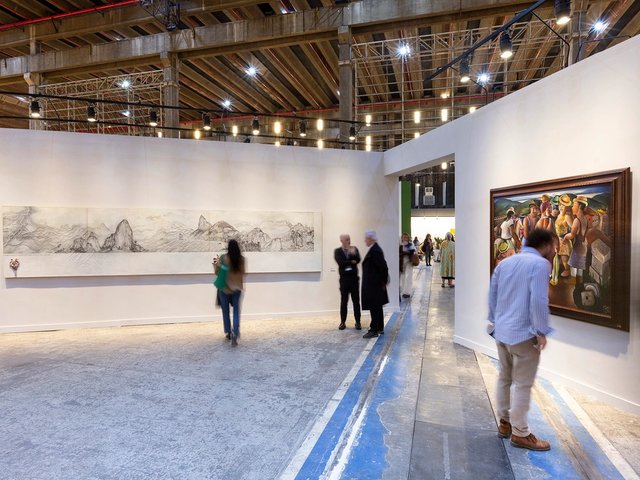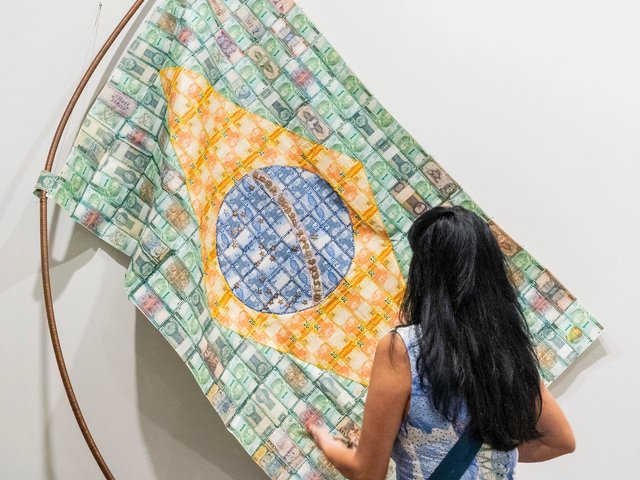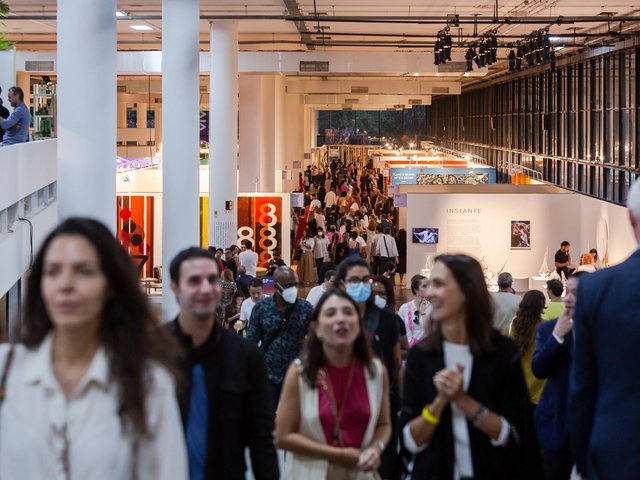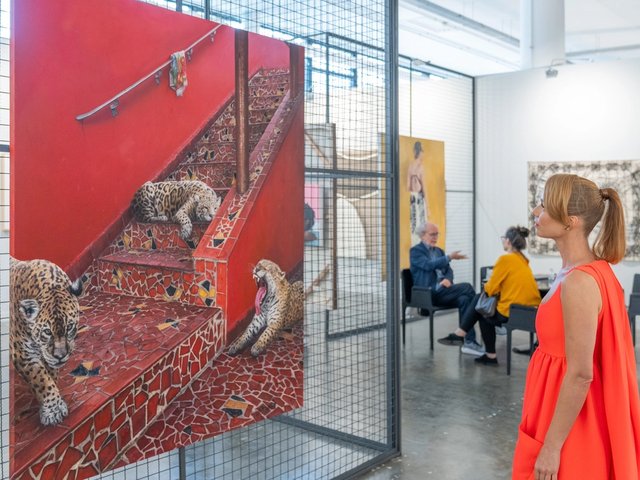The 20th edition of SP-Arte in São Paulo—Brazil’s leading art fair—will open just weeks ahead of the 60th Venice Biennale (20 April-24 November), a historic moment for the country’s art world as Adriano Pedrosa becomes the first Brazilian to curate the exhibition. The nation’s commercial sector is prepared to “capitalise on the moment”, says Fernanda Feitosa, the founder of SP-Arte. The fair will this month bring together 180 exhibitors, including those from more than 15 Brazilian cities.
“There are 30 Brazilian artists in the Venice Biennale—our biggest delegation ever,” Feitosa says. “Almost all of these artists have been shown in the fair and are familiar to our audiences. Of course, that brings us a sense of pride, like our efforts over the years have been legitimatised.”
Of Pedrosa’s curatorial approach, Feitosa praises both his “international vision” and his inherent focus on Brazilian art, adding that SP-Arte was once a springboard for the curator. Pedrosa spearheaded an artistic programme for the fair from 2011 to 2014; he was later appointed the chief curator of the Museu de Arte de São Paulo (MASP), working under Heitor Martins, the president-director of the museum and Feitosa’s husband.
I thought, Brazil has a vast artistic production, we’re a major financial centre, we have the galleries and we have collectors who want a place to see the artists of their timeFernanda Feitosa, founder of SP-Arte
Feitosa launched SP-Arte in 2005, more than a decade after beginning to amass her private art collection while travelling with Martins to fairs throughout South America and Europe. “There was a group of Brazilian galleries then who were exhibiting at the fairs abroad, but there was nothing happening in São Paulo,” Feitosa says. “I thought, Brazil has a vast artistic production, we’re a major financial centre, we have the galleries and we have collectors who want a place to see the artists of their time.”
The first edition of the fair featured 40 exhibitors, a lineup made up primarily of Brazilian galleries like Galeria Raquel Arnaud, known for introducing geometric abstraction, Constructivism, Neo-Concretism and kinetic art to Brazil. The gallery will bring works by Iole de Freitas and other prominent artists from its programme to this edition. The fair coincides with a retrospective Raquel Arnaud will stage at its space in São Paulo’s Vila Madalena district to celebrate its 50th anniversary, with works by artists including Lygia Clark, Sérgio Camargo and Tunga.
“Their success is our success; as an important name in Brazil it’s critical that we’re contributing to this ecosystem,” Galeria Raquel Arnaud’s director, Myra Arnaud, says about the gallery’s ongoing participation in SP-Arte. “Remembering how we got where we are is also important, because there are many galleries now, but that was not the case in the 1970s; it was a time when several artists had moved because of the dictatorship, and there wasn’t a market here. That’s changed. It’s an interesting moment in the Brazilian art world.”
The size and scope of SP-Arte has also evolved throughout the years. For example, SP-Foto launched in 2007 and ran until 2019, later returning as part of the ongoing SP-Arte Brazilian Routes in 2022. The same year, the fair introduced a design section, which makes up around 40% of the 2024 roster. The fair attempted an edition in Brasília in 2014, but has not since returned to the Brazilian capital. Casa SP-Arte, a permanent space affiliated with the fair that hosts rotating exhibitions, opened in São Paulo’s Jardins neighbourhood in 2023 with an exhibition of works by Hélio Oiticica.
With each edition, the number of exhibitors has increased. But the most significant change SP-Arte has seen throughout the years is the ebb and flow of participating international galleries amid Brazil’s volatile economy. A turning point for the fair came in 2012, when the government of São Paulo introduced a tax exemption window that temporarily reduced the standard 58% import tax to 20%, creating an incentive for foreign galleries which were previously hesitant to take part in the fair.
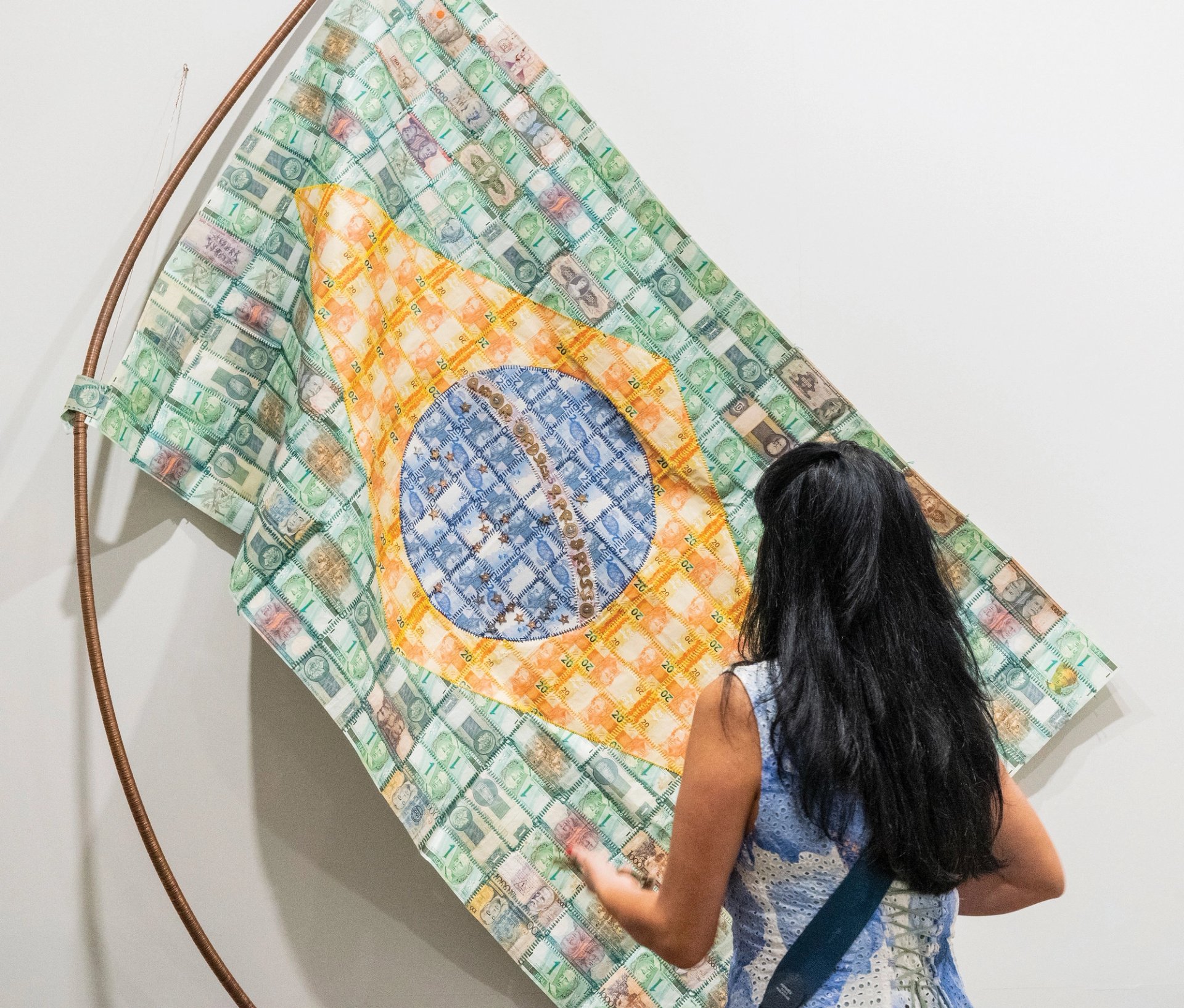
Show me the money: a work depicting a Brazilian flag made of tinted banknotes Courtesy of SP–Arte
Between 2012 and 2016, the fair had the highest number of international galleries, with some editions including David Zwirner, Lisson, Hauser & Wirth, Gagosian and White Cube. But most of these galleries pulled out after 2016 due to Brazil’s deepening recession, changes to the exchange rate and because there is no guarantee that the government will maintain the tax exemption period (which will be confirmed this month, shortly before the fair opens its next edition).
“During that period, those [global] galleries met several Brazilian clients, so it was a good moment for everyone,” Feitosa says. “The world has changed, and the presence of international galleries has been downsized, but their importance in Brazil and the presence of international artists in Brazilian collections has not changed because SP-Arte provided that initial bridge of communication.”
The lack of American mega-galleries “means more Brazilian galleries have joined”, and does not discount the several Brazilian exhibitors that have attained blue-chip status over the last two decades, Feitosa says. Mendes Wood DM, for example, was founded in São Paulo in 2010 but has since opened spaces in Brussels, Paris and New York, establishing a conceptually and geographically diverse roster of artists and clients. The gallery has participated in the past ten editions of SP-Arte and this year will present a mix of Brazilian, European and American artists, like Sonia Gomes, Paulo Nazareth, Kasper Bosmans and Lynda Benglis.
Pedro Mendes, a co-founder of Mendes Wood DM, says the diversity of the gallery’s programming has allowed it to withstand the “challenging moments” that have afflicted the Brazilian art market. “Since half of our programme is international, we’re very aware of different bureaucracies. However, the solidity of this programme is what has enabled us to effectively navigate through these times.”
• SP-Arte, Pavilhão da Bienal, Parque Ibirapuera, São Paulo, 3-7 April


